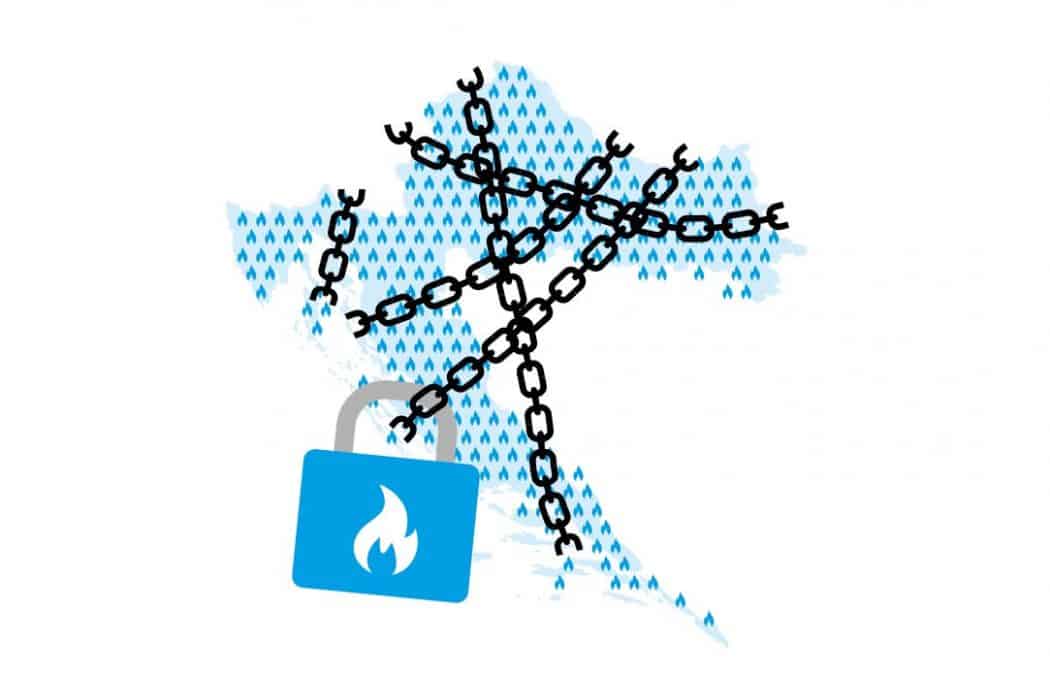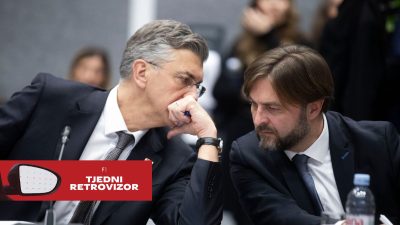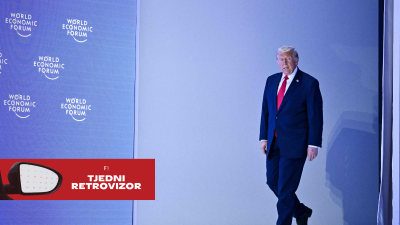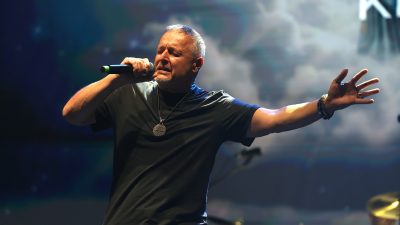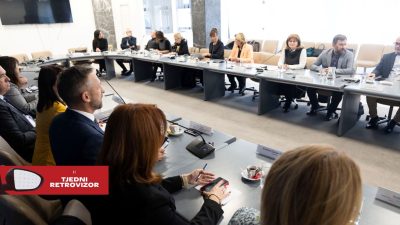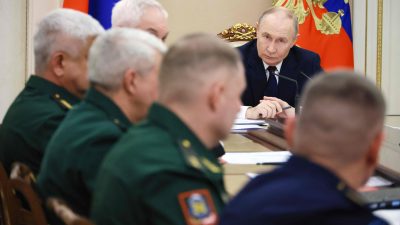This article was adapted from the introduction to the Gong research study “Captured by Gas”, developed in cooperation between Faktograf.hr’s investigative journalist Petar Vidov and public policy analyst Duje Prkut. You can download the complete publication HERE.
It is an incontrovertible fact that energy is the most important industry in which nation states recognise their strategic interests. “Energy is to the economy what food is to people”, as stressed by a number of respondents interviewed for this research. However, in Croatia, the energy sector is also the scene of dozens of mostly unresolved corruption affairs, behind which networks of special interests loom. The Croatian political system is vulnerable to special and corrupt interests in the best of times, but in the energy sector, this problem is especially pronounced due to the sector’s financial intensity: the value of energy projects is usually expressed in billions of Kunas. Therefore, we designed and conducted a study aiming to establish the quality of governance in the Croatian energy sector, and the level to which it is dominated by hidden, special interests (so-called policy capture). In addition, we wanted to know to what extent the state of energy policy in the Republic of Croatia is a reflection of the external policy goals of the Russian Federation, which is why we put special emphasis on gas sector policy. Natural gas enjoys a status as an important transition fuel in the switch to a post-fossil age, and the main gas supplier for the entire continent of Europe – Croatia included – is the Russian Gazprom, Vladimir Putin’s powerful geopolitical weapon.
We embarked on this study because of the essential character of energy sector services to the development of states and their economies; the clearly present widespread corruption; and the fact that it is an industry that is highly susceptible to political influence. In addition, we were inspired by the 2016 study, “The Kremlin Playbook: Understanding Russian Influence in Central and Eastern Europe”, which denounced the key instrument of Russian capture: systematic weakening of a local actor in the gas market, so that Gazprom’s intermediary firms might achieve a dominant position. Although the study didn’t cover Croatia, the authors have identified it as an “especially vivid example”, as it appears that, “Russian-influenced networks … reach the pinnacle of government decisionmaking.” We felt it necessary to try to verify the quoted assertion, as “The Kremlin Playbook” study states that an increased presence of Russian capital in local economies in Eastern and Central Europe – which Russia considers its sphere of interest – has resulted in a sliding towards kleptocratic illiberal democracy. We were especially interested in the effects of the liberalisation of the EU gas market, which in the east of Europe have resulted in the Russian Gazprom attaining a monopoly. Although liberalisation opened Eastern European markets to various brokers, all the gas being traded comes from the same source.
There are several reasons why overdependence on Russian gas is considered undesirable. Depending on a single supplier makes gas supply security an instrument of political pressure, which became clear following the Ukrainian gas crisis in 2009. Likewise, the Russian domination of the gas market is conducive to corruption, which accelerates the degradation of the rule of law and calls into question the independence and autonomy of the supervisory institutions. Finally, Europe’s dependence on Russian gas slows down the transition towards a low-carbon economy; Eastern European states still largely rely on coal-powered thermal power plants to produce electricity precisely out of fear that if they were to completely switch to gas, they would become even more exposed to Russian blackmail. The key Russian foreign-policy goal is to politically align Russia with the European continent, something unfortunately not achieved by increasing the level of democracy, transparency and human rights in Russia, but by attempts to politically capture East European countries in order to push them towards the authoritarian model of governance that exists in Putin’s Russia. Instead of building a partnership with the EU, Russian actions are directed towards dissolving the unity within the Union. Kleptocratic illiberal elites that have carried out this retrograde transition have advocated weakening the influence of EU institutions, enabling Russia to avoid having bilateral relations with the EU, and setting up multilateral relations with individual member states. Such an approach has been particularly successful in Hungary, whose prime minister Viktor Orbán is considered Putin’s prime ally in the EU and is the loudest proponent of the concept of so-called Christian illiberal democracy. During Tihomir Orešković’s, and especially Andrej Plenković’s terms of office, a renewed political closeness between Croatia and Hungary is visible following years of compromised relations. Several times, HDZ (Croatian Democratic Union) MEPs took the side of the politically isolated Hungary (and Poland) in votes on human rights and rule of law issues, while opposing the formal position of their own political grouping, the European People’s Party (EPP). Orbán’s government has stopped blocking Croatia’s accession to the Organisation for Economic Cooperation and Development (OECD). The new Law regulating the privatisation of INA opens the possibility for the Hungarian MOL to finally officially acquire majority ownership in the Croatian oil company. Prime Minister Plenković welcomed Orbán to Zagreb for the first time in seven years, and the two Prime Ministers also informally socialised during Orbán’s summer holiday in Croatia. All this might not have been concerning had phenomena intrinsic to illiberal democratic systems not been on the rise in Croatia at the time: political intransparency and propensity towards corruption, questionable independence of the media and judiciary, poor performance of supervisory and control institutions, repeated attempts to limit the achieved level of human rights and freedoms.
The results of the study indicate a total absence of strategic governance and deliberation in the energy sector. Croatia had adopted two energy strategies, in 2002. and in 2009., but these were documents of questionable quality, which hadn’t been implemented anyway. The level of disregard for the energy sector can be seen in the fact that the strategies haven’t been accompanied by operational documents, which would be a key prerequisite for a meaningful evaluation and managing the implementation of the policy itself. Key decisions in the energy sector are adopted outside, and sometimes even despite the existing strategies, and are susceptible to opaque lobbying influences. The Croatian energy sector can metaphorically be described as a vacuum, completely exposed to special interests and their advocacy of often harmful energy projects. Anyone can “rush into” this vacuum with their own project, and the Republic of Croatia won’t be able to unambiguously state whether such projects are in its own national interest. Because it hasn’t even defined its national interests. Ever since gaining independence, the Republic of Croatia has only managed to construct a single energy facility, the small hydroelectric plant Lešće, but even this was conceptually designed when it was still a part of Yugoslavia. The energy sector in Croatia didn’t develop, because building energy facilities is an expensive and lengthy endeavour that requires long-term strategic planning.
Moreover, it has been established that the Republic of Croatia already satisfies the bulk of its needs for gas by importing it. It is likely that Croatia’s dependence on Russian gas will increase still further: INA’s production of gas from Northern Adriatic fields has been declining, and there have been no new finds or explorations; an LNG terminal, as an alternative supply line for gas from Qatar, or the USA, hasn’t been built yet, while Croatia’s gas storage capacity “for a rainy day” or for market manoeuvres are very modest. The results of the research also show that after its management was relinquished to MOL in 2009, INA has lost its dominant position in the gas market, as well as a great deal of its capacities for exploration and exploitation of gas deposits. Weakening the market position of the national oil and gas company, most frequently through corrupt methods, in order to make space for Gazprom’s intermediary in the gas market is an important instrument of capture, according to the “The Kremlin Playbook”. This study has confirmed that such a process has taken place in Croatia as well. INA’s dominant role in the Croatian gas market was assumed by Prvo plinarsko društvo (PPD), an intermediary company for importing Gazprom’s gas. The PPD’s influence on the Croatian political space is beyond question. This firm used loans worth millions to finance Tomislav Karamarko’s then opposition HDZ party, whose political activities overflowed with illiberal tendencies: promoting historical revisionism, advocating criminalising verbal injury, threatening to remove the rights of national and sexual minorities as well as women’s reproductive rights, censoring independent journalists’ and satirists’ voices, dismantling models of independent financing for civil society and film production, labelling critics as national traitors, and contributing to rising hate speech, incendiary speech and political incorrectness. The owner of PPD, Pavao Vujnovac, would also have been able to influence political decisions through his personal relationship with Ivan Vrdoljak, president of the liberal Croatian Peoples Party (HNS) and Minister of the Economy in the coalition government formed by social-democratic SDP, during whose mandate the huge commercial rise of the PPD occurred. However, it is also necessary to stress that the model of capturing the gas market described in “The Kremlin Playbook” would be impossible to apply without the European policy of gas market liberalisation. It is obvious that in adopting energy liberalisation packages, the European Union did not take into account the specificities of Eastern and Central European gas markets, which has led to Russian economic and political domination over these regions.
The ultimate objective of such Russian activity is state capture, and it is for this reason that in the coming period the Republic of Croatia ought to reduce its dependence on natural gas as the primary source of energy for heating and electricity production. The harmfulness of further expansion of the gas distribution network in Croatia may be argued for both political, as well as economic and environmental reasons. Reducing gas dependency from the political angle means the reduction of susceptibility to harmful Russian influence. But considering the recent alarming climate indicators, it is even more important to highlight that natural gas is not an environmentally acceptable energy source. Gas has an important role in the transition towards a low-carbon economy, as it can serve as a replacement for dirtier fossil fuels such as coal, but it nevertheless contributes to the level of greenhouse gas emissions. And since investing in gas-powered energy plants is less cost-effective than investing in renewable energy sources, the economic logic of responsible management of public funds likewise dictates a stronger turn towards renewable energy sources. As Croatia has to a great extent been deindustrialised through criminal transition and privatisation, its needs for hydrocarbons are already fairly low. At the same time, Croatia has at its disposal large amounts of unused potential renewable energy sources, primarily solar and wind energy as well as hydro-power potentials. A sensible energy policy should thus primarily focus on installing micro-solar power systems, which, thanks to technological advances, has become not only the cleanest, but also the cheapest way of producing electrical energy. Moreover, Croatia might satisfy at least part of its needs for gas with renewable biogas obtained from composting organic waste. Investment in renewable energy sources would stimulate the growth of the Croatian economy, development of local communities and the reduction of energy poverty as well as overall poverty among Croatian citizens. Unfortunately, all the data collected suggest that managing the energy sector in line with the Croatian interests will not come about before the way of doing politics in Croatia is fundamentally transformed. Building a political system, state administration and public sector inhabited by principles of responsibility, transparency, integrity and accountability for one’s own work are the precondition for good governance in the energy sector, which demands a high level of expertise, long-term thinking and coordination with other public policies (such as, for instance, the waste management policy, agricultural or transport policy). These are therefore also the preconditions necessary for energy policy to fulfil its fundamental function, which in Croatia has existed on a merely declaratory level – to allow the energy industry to truly become a fundamental developmental lever for both the society and the state.
